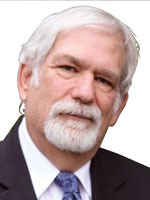Seeing employees through a different light
When defense counsel denigrates “employees looking to get a free ride,” it may be proper to remind the jury of today’s real heroes
We are in the midst of a pandemic that has totally upset the lives – and perhaps even the attitudes – of every sentient being. As co-editors of Advocate’s annual “Employment Issue,” we have been thinking about COVID-19 from the perspective of employees.
Thanks to what many of us call the “tort deform” propaganda machine, employees who bring lawsuits to vindicate their rights in the workplace are often demonized. Plaintiffs who suffer from disabilities are deemed “shirkers,” “complainers,” and generally people looking for “a free ride.”
Women who complain about sexual harassment are often referred to as “thin-skinned” and “can’t take a joke.” Or, they are regarded as women who play up their own sexuality to try to advance their careers by tempting God-fearing, religious bosses who sometimes give in to their weaknesses through the combined efforts of Satan and his modern-day “Eves.” In either case, all these women are seen as playing the system to obtain benefits they do not deserve.
By like token, minorities are portrayed much like women and the disabled. Those who take umbrage at racial slurs and images (e.g., pictures of nooses left on their desks), are said to be too sensitive. Those complaining about the small percentage of their group receiving promotions or being offered leadership positions are characterized as “playing the race card” or looking for affirmative action “hand-outs.”
As a result, employees are demonized as greedy cheaters – a tool defense counsel are only too happy to exploit to convince juries to find no liability or, at worst, to drive down the size of damages awards. And, far too often, jurors are happy to take out their own resentments on these plaintiffs.
Ordinary becomes heroic
Hopefully, however, there may be a way to start changing all that. In these crazy and terrifying times of COVID-19, many ordinary employees are seen as the brave and selfless people.
Normally, first responders are afforded that respect. (Of course, even here, there are notable exceptions such as President Trump baselessly accusing them of hoarding or stealing supplies because the amounts being received for anticipated needs down the road are higher than he would have imagined.)
But now, employees other than first-responders are also enduring cruel hardships, risking their own lives, and worrying about passing on the disease to their families. These are the people who work in supermarkets and restaurants to protect the food chain, who deliver needed products to our homes, and who perform other unglamorous, but critically important jobs for the public good.
Our goal in articulating these thoughts is to suggest that all of us do what we can to further this different perspective concerning employees. That may be in our political lobbying work, in any actions that may have a public relations component, and in our social networking.
For plaintiffs’ trial lawyers in particular, that perspective may even be used – carefully and sparingly – in responding to defense arguments that paint employees with a broad brush as greedy, selfish, or unprincipled. As appellate lawyers, we shudder to think what the foregoing sentence might unleash if it is not properly limited. This is because when we are asked to consult on potential appellate dangers that may occur during trial, one of the biggest problems that we inveigh against is the natural tendency of trial lawyers to push the rhetorical/legal limits during closing argument. Like the parents of teenagers, it often seems that our main job is to repeatedly say “no,” “careful,” “too dangerous,” and “maybe next time.”
The guiding legal principle is that closing argument should be tied to the specific facts of the case, not generalized statements about types of people. Nonetheless, if defense counsel opens the door by making negative generalized statements about people who sue their companies for improper reasons, there may be room for a carefully limited rebuttal that puts employees in a different light. The right circumstances will occur infrequently, and our advice would often be, “maybe next time.”
But in the right case, the perspective we have identified might be both powerful – and not that dangerous. For instance, imagine that defense counsel waxes poetic about how, “these days, employees are always looking to get a free ride from their employers” or are “too thin-skinned.” You should object and, if the objection is sustained, it may look like it is defense counsel who is looking to get the “free ride” via the “cheap shot.” But, what if the objection is overruled? We believe it would be fair game to respond by saying something like: “These days, when Americans should be appreciating the loyalty, professionalism, sacrifice, and heroism of employees, some people – like the defendant – only want to denigrate them to serve their own narrow self-interest. That is the true greed and overreaching at issue here.”
A final thought about some other heroes. We wanted to express our deep appreciation to all the contributors who gave so generously of their time (and their sheer brain power) to make this issue so valuable. Some are our true stalwarts such as Andrew Friedman, Iris Weinmann, and Ramit Mizrahi who we regularly count upon to serve up great articles. The remaining authors are largely people who have contributed in the past—and who we fully intend to rely upon in the future: Dustin Collier, Joshua Socks, John West, Martin Aarons, Shannon Ward, and Toni Jaramilla. We also want to thank our associate Chris Lim for the many hours he devoted in helping to pull this issue together.
Scott Tillett

Scott Tillett is a partner at the Los Angeles-based appellate firm, Pine Tillett LLP where he handles civil appeals, specializing in plaintiff-side appeals with an emphasis on employment matters. Tillett is recognized as a Certified Appellate Law Specialist by the State Bar of California. Along with his partner, Norman Pine, Tillett was a recipient of the Daily Journal’s 2020 California Lawyer Attorneys of the Year (CLAY) Award for his work on the landmark wrongful-death civil rights action, B.B. v. County of Los Angeles (2020) 10 Cal.5th 1. For his work on this case, he was also recognized as one of the Consumer Attorneys of California’s 2021 “Street Fighters of the Year.”
Norman Pine

Norman Pine is a founder of the appellate firm Pine Tillett Pine, specializing in plaintiff-side appeals with an emphasis on employment matters. Norm Pine has been editor of the Advocate Employment Law issue since 2001 when he took over for legendary employment lawyer Joe Posner. He and his wife and law partner, Beverly Tillett Pine, founded the appellate firm of Pine and Pine, predecessor to Pine Tillett Pine. Norm was named CAALA’s Appellate Lawyer of the Year in 2003 and, jointly with Beverly, won CELA’s “Joe Posner” award in 2008.
Copyright ©
2025
by the author.
For reprint permission, contact the publisher: Advocate Magazine
